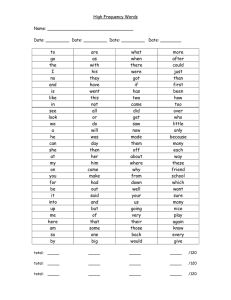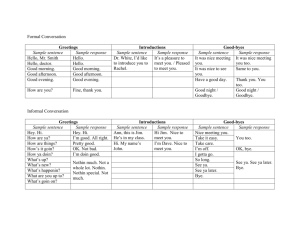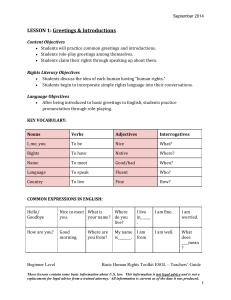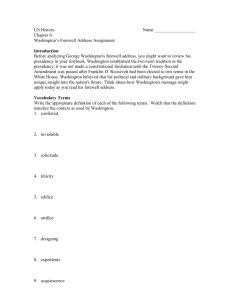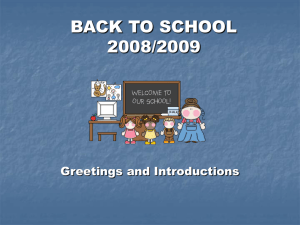Different Ways of Saying It: Greeting People
advertisement
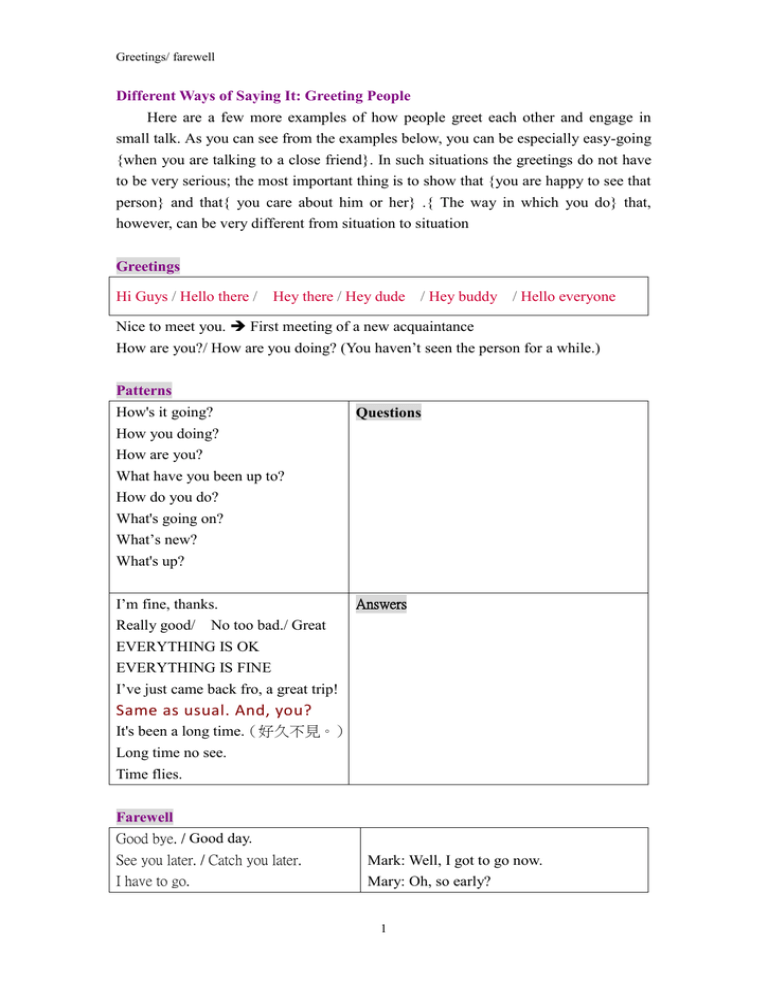
Greetings/ farewell
Different Ways of Saying It: Greeting People
Here are a few more examples of how people greet each other and engage in
small talk. As you can see from the examples below, you can be especially easy-going
{when you are talking to a close friend}. In such situations the greetings do not have
to be very serious; the most important thing is to show that {you are happy to see that
person} and that{ you care about him or her} .{ The way in which you do} that,
however, can be very different from situation to situation
Greetings
Hi Guys / Hello there /
Hey there / Hey dude / Hey buddy / Hello everyone
Nice to meet you. First meeting of a new acquaintance
How are you?/ How are you doing? (You haven’t seen the person for a while.)
Patterns
How's it going?
How you doing?
How are you?
What have you been up to?
How do you do?
What's going on?
Questions
What’s new?
What's up?
I’m fine, thanks.
Really good/ No too bad./ Great
EVERYTHING IS OK
EVERYTHING IS FINE
I’ve just came back fro, a great trip!
Answers
Same as usual. And, you?
It's been a long time.(好久不見。)
Long time no see.
Time flies.
Farewell
Good bye. / Good day.
See you later. / Catch you later.
I have to go.
Mark: Well, I got to go now.
Mary: Oh, so early?
1
Greetings/ farewell
Have a nice day.
Mark: I have to get up early tomorrow.
Drop in any time.(有空來坐。)
Mary: Well, I’ll see you later.
Let's keep in touch.
Nice/good seeing you.
Take care.
Farewell.
Talk to you later.
So long.
I've got to go
I hate to run, but..
(.不走不行..)
I'm off now.
I'm leaving.
I'll be seeing you. / I will be back.
A: How are you doing?
Three types of response
B1: I'm doing fine / OK / Pretty well.
be better.
B2: Not bad. / Just so-so. /
/ Great.
/ Fabulous! / Terrific! / Never
The same as always. /
I can't complain.
B3: Terrible. I've had a headache all morning.
A: What’s up?
B: No much.
A: What’s new?
B: Nothing much. I am still the same. Same shit, different day.
2
